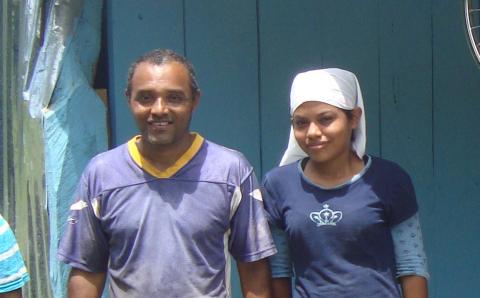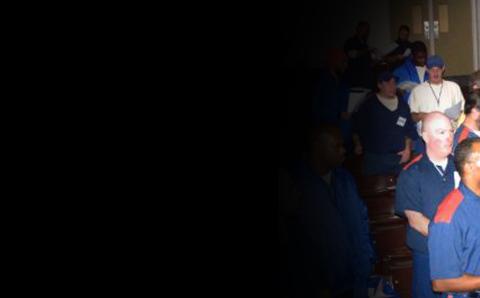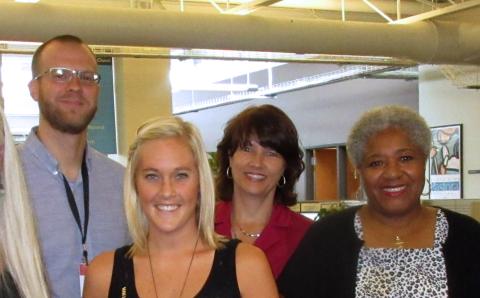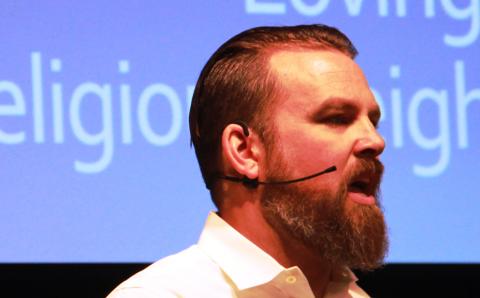Monday morning. Fourth grade. Dreaded memory verse time.
The assigned verse, linguistically anachronistic in the requisite American Standard Version (as well as age-inappropriate for a child of 10) reads, “For thou didst form my inward parts, thou didst knit me together in my mother’s womb. I praise thee, for thou art fearful and wonderful. Wonderful are thy works! Thou knowest me right well. . . .” (Ps. 139:13-14).
Though I had spent considerable time miserably trying to memorize this verse, even reciting it to my mother the night before, I could not write it verbatim. I could recite a reasonable paraphrase, but my handwriting was mostly illegible and my spelling was wretched. This prompted a tirade of public censure from my teacher: “One must never change the Bible; after all, God wrote it. If you are imprisoned (presumably by the communists) without a Bible, you will need to know it by heart. Your spelling will need to improve if you are ever going to get a job that doesn’t involve digging ditches.” She then pronounced the punishment: “You must spend recess writing it legibly and correctly 10 times.” This was later waived, which was good because I knewest right well that I couldst not carry it to fruition.
Now, over 50 year later, I would do little better with the same assignment. Genetically, as God knit my double helixes together, I was endowed with dyslexia exacerbated by some attention deficit hyperactivity disorder (ADHD). Dyslexia is a malady of the brain that manifests itself in difficulty processing or coding the input of information when seeing or hearing words and—equally frustrating—processing the output information. I find it difficult to write or even type in a coherent manner.
I see or hear words differently from a “normal” person. When I read I do not see words as a series of letters and syllables but as images or symbols formed mainly by consonants. The spelling corrector on my computer just spit up “malady” and “melody” when I typed “maledy,” which, even after close examination, looks identical to me. I had to look up the meaning to correctly choose the word.
The order of the letters matters, but I often see them and write them in reverse order. Though “lemody” is unusual, I can easily see “melody” in it. And small words like “saw” and “was” are nearly the same to me, as are “sew,” “sow” and “Wes.” From a hearing standpoint, I also have trouble distinguishing “malady” from “melody.” It is difficult for me to connect the sound made by a specific letter or decipher the sounds of combined letters to form a word.
A number of other issues also come with dyslexia: among them, differentiating left from right, transposing numbers, oral reading, evenly spacing letters in a line, learning a second language, taking notes, sequencing ideas, and drawing.
Aside from academia, these cause a host of real-life situations that are frustrating or embarrassing, if not funny—reading poorly in a Bible study, turning the wrong way during close order drill in the Army, misspelling at the white board during a major presentation at work, choosing the wrong word in an email blast, and giving people my address or phone number incorrectly. Others are much weightier—the effort to learn Spanish while working in Central America, keeping a ledger, and writing major work documents. I live with the problems on a daily basis.
Not surprisingly, the most intense problems for a dyslexic person occur in education, with early elementary school being especially difficult. In the fourth grade I was reading poorly and could barely write or spell even my own name. Other subjects, like arithmetic, suffered as the result of my inability to write numbers, especially in usable columns. I scored at the very lowest level of my class on the standardized tests. My parents had to convince the school to pass me to the next grade several years in a row.
During the summer between fourth and fifth grade, my mother was determined to teach me to read, forcing me to spend several hours a day reading. I actually learned to read with some speed and considerable comprehension. I started to learn each word or group of words as symbols and was able to piece them together to make sense. For the first time, I could understand what was being communicated through words. I still was not able to read out loud very well and made little progress in handwriting, spelling, or memorization.
Reading with understanding and comprehension opened new windows for me. I went from scoring low on standardized tests to scoring quite high because they were reading-based with fill-in-the-bubble answers. But my classroom situation did not improve much. Even though I was no longer considered “dumb,” I was perceived as not working to my potential. My problem was considered a moral issue involving some combination of sloth, carelessness, and indifference.
There were also emotional and self-image issues. My inability to write in a straight line or within margins made coloring, cutting, and drawing very difficult. I remember a third-grade teacher holding up one of my art pieces and declaring that she could chew it more neatly than I cut it. Later in life, when I realized that my problem was a disability, I envisioned this poor lady spending each day of eternity, Dante-esque fashion, chewing a ream of foul-tasting red construction paper in perfectly straight lines. Growing up in a church-oriented subculture where memorization and writing were required in school, Sunday school, catechism, and even boys’ club, I carried a stigma well known throughout the community.
Kathy, my wife—alas, also a fourth-grade teacher—cautions me that I am viewing my early life from the censorious, less-than-mature perspective of a frustrated child. This equally censorious view has validity. Much less was known about learning disabilities in the 1950s. My early teachers, who were not trained educators, had only a few years of college, and the culture of raising and educating children was much different. I am certain that many of the teachers, leaders, and pastors wanted to do their job well, and some really cared about me.
I did receive two significant gifts. First, my teachers never gave up on me, and second, they emphasized the foundations of Christian faith. Unlike many people with disabilities, I did not get passed through a system with social promotions and minimal expectations. Though often faced with inappropriate demands that were impossible for me to achieve, and, at least from my perspective, brutal to my self-esteem, I was constantly pushed to not be satisfied with less than what the sovereign God demanded of me in life.
Did God screw up my genetics by some accident of fate? Did a few of the adenine and guanine dinguses slip through his fingers? Or worse, did God create me with a good intellect but with a set of disabilities so he could smile as the world delighted at my mistakes? How should I understand the dropped stitches in my knitting?
I see God’s grace overwhelming my life in ways not of my own choosing. God gave me employment that was challenging, meaningful, and mostly fit my abilities. God put me on earth at a time when computers made me mostly literate. God gave me my wife, Kathy, who, mostly, enjoys me as I am, and is supportive of my glitches. God gave me his presence— from elementary school through retirement—making a way as I felt helpless and hopeless.
So here is the dreaded memory verse, paraphrased: “For thou didst knit me together in my mother’s womb. Thou didst knit my years together, day by day. Thou knowest me, everyone, and the world right well. I praise thee, even questioneth thee, for thou art fearful and wonderful. Wonderful are thy works!”
About the Author
James Boldenow is Network and Helpdesk Team Manager of Information Services for the Christian Reformed Church in North America. Previously he worked as a contractor with the U.S. Department of Homeland Security.









